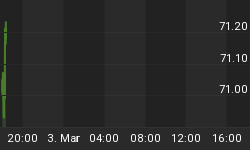The most recent brewing Facebook scandal over the sharing of data with Chinese companies isn’t about Facebook at all. It’s not even about social media. It’s about the sudden American realization that China poses a major national security threat, and we’re just playing a dangerous game of catch-up.
For many, many years, geopolitical experts of the highest caliber have been telling anyone who would pretend to listen that China should be the primary focus of foreign policy--and that among all the rogue nations, non-state actors and state forces attempting to shift the balance of power in the world, the single most critical threat is China.
But soft power, as it’s intended to, creeps up on you and consumes you (in this case quite literally with Chinese consumer goods) before you realize it.
Aside from some rumblings far from America in the South China Sea, China has never been a visible threat, so the presidents of modern history have given it a wide berth, while corporate America has benefitted greatly a cost-of-manufacturing standpoint.
Chinese investment in the U.S. reached $46.5 billion in 2016, and then fell to $29.7 billion last year, with the decline starting before Trump became president, but having nothing to do with American foreign policy on the issue. Instead, the drop was facilitated by Beijing’s own attempt to tighten restrictions because its biggest conglomerates were making a ton of acquisitions and risked overextending themselves.
But the cheap consumer goods bonanza was just the first phase of the soft power plan. The second was technology—and it was only after China had fully embedded itself in the U.S. technology picture, and engaged in significant intellectual property theft—that people in Washington started to think that the threat was real. Related: Gold Could Head Lower In Coming Weeks
So, why do we care if Facebook has been giving Chinese companies access to the personal data of Americans? Because technology is the only weapon that counts in the battle for global dominance, and data is its ammunition.
Facebook, according to the New York Times, has data-sharing deals with four Chinese electronics giants—maybe more—dating back to 2010. Those companies include Huawei, which is deemed a national security threat by the U.S. intelligence apparatus. They also include Lenovo, Oppo and TCL.
The significance that typically eludes the American masses when considering this existential threat is that even when these Chinese companies are private, and not state-run, they are ultimately beholden to the Chinese government. Even more so when the industry they represent is considered “strategic” by the Chinese authorities. And technology is highly strategic.
Citing Facebook officials, the NYT said that the social media giant’s agreements with Chinese companies game them access to data on device users and “all of their friends – including religious and political leanings, work and education history and relationship status”.
Huawei has close ties to the Chinese government any way you look at it, and especially in the eyes of the U.S. intelligence agencies.
Facebook says it’s winding down its deal with Huawei by the end of this week, but Facebook is hardly the problem here.
Related: Why June Won’t Be Boring For Gold & Silver
China has infiltrated the U.S. technology scene in ways that few consider, and far beyond Huawei and ZTE. Chinese companies are a huge part of the supply chain, and according to telecoms expert Joel Snyder, “No piece of network equipment is manufactured without Chinese-sourced components, and a great deal of final assembly from major vendors, such as Cisco Systems Inc., Juniper Networks Inc., Hewlett-Packard Co., Apple Inc. and Dell Inc., depend heavily on facilities in China.”
America dropped the ball on technology out of greed. Now, our tech is basically Chinese … so this is a war that will be complicated to say the least, and very hard to win.
By Damir Kaletovic for Safehaven.com
More Top Reads From Safehaven.com:

















